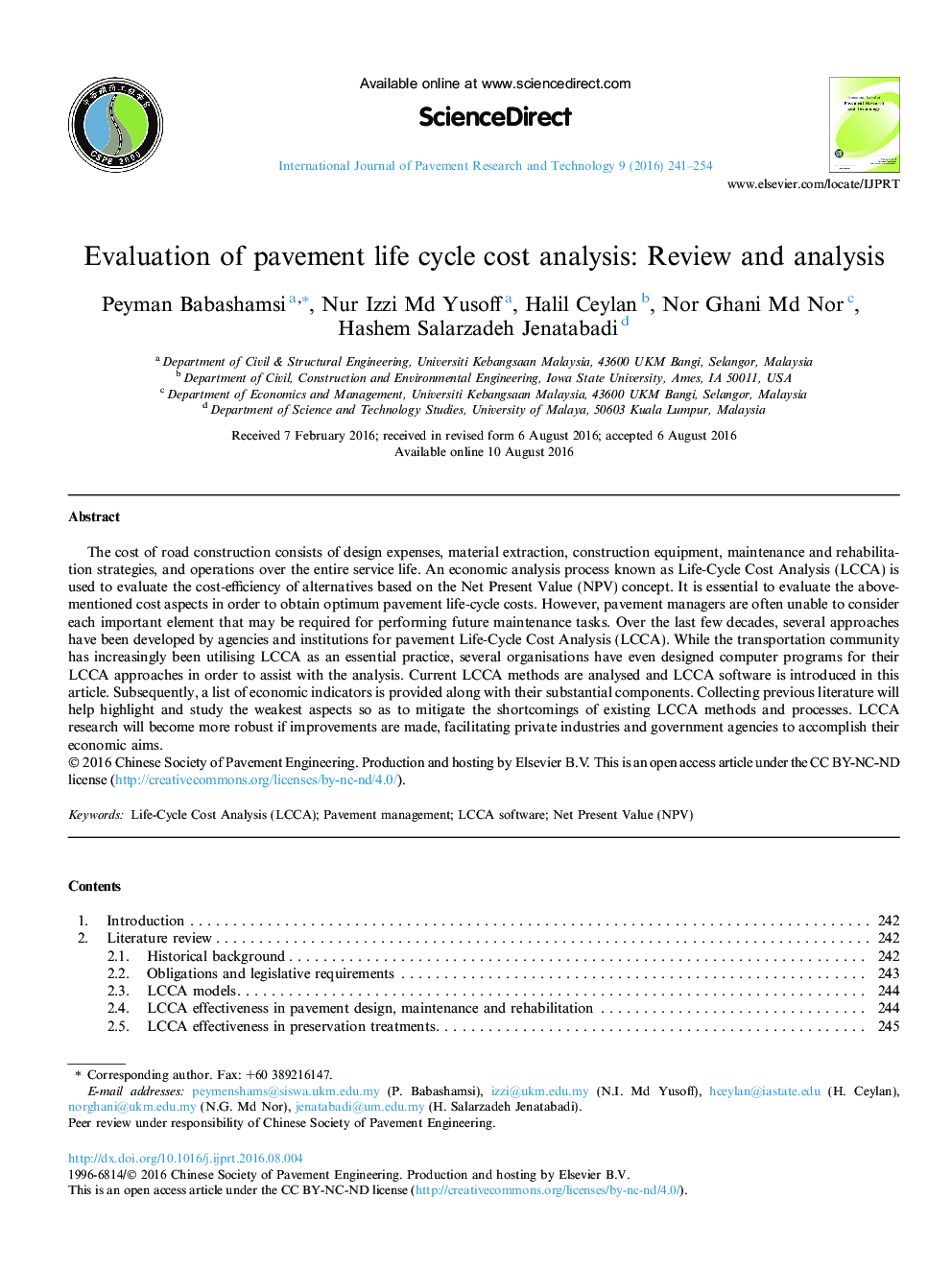| Article ID | Journal | Published Year | Pages | File Type |
|---|---|---|---|---|
| 4921974 | International Journal of Pavement Research and Technology | 2016 | 14 Pages |
The cost of road construction consists of design expenses, material extraction, construction equipment, maintenance and rehabilitation strategies, and operations over the entire service life. An economic analysis process known as Life-Cycle Cost Analysis (LCCA) is used to evaluate the cost-efficiency of alternatives based on the Net Present Value (NPV) concept. It is essential to evaluate the above-mentioned cost aspects in order to obtain optimum pavement life-cycle costs. However, pavement managers are often unable to consider each important element that may be required for performing future maintenance tasks. Over the last few decades, several approaches have been developed by agencies and institutions for pavement Life-Cycle Cost Analysis (LCCA). While the transportation community has increasingly been utilising LCCA as an essential practice, several organisations have even designed computer programs for their LCCA approaches in order to assist with the analysis. Current LCCA methods are analysed and LCCA software is introduced in this article. Subsequently, a list of economic indicators is provided along with their substantial components. Collecting previous literature will help highlight and study the weakest aspects so as to mitigate the shortcomings of existing LCCA methods and processes. LCCA research will become more robust if improvements are made, facilitating private industries and government agencies to accomplish their economic aims.
